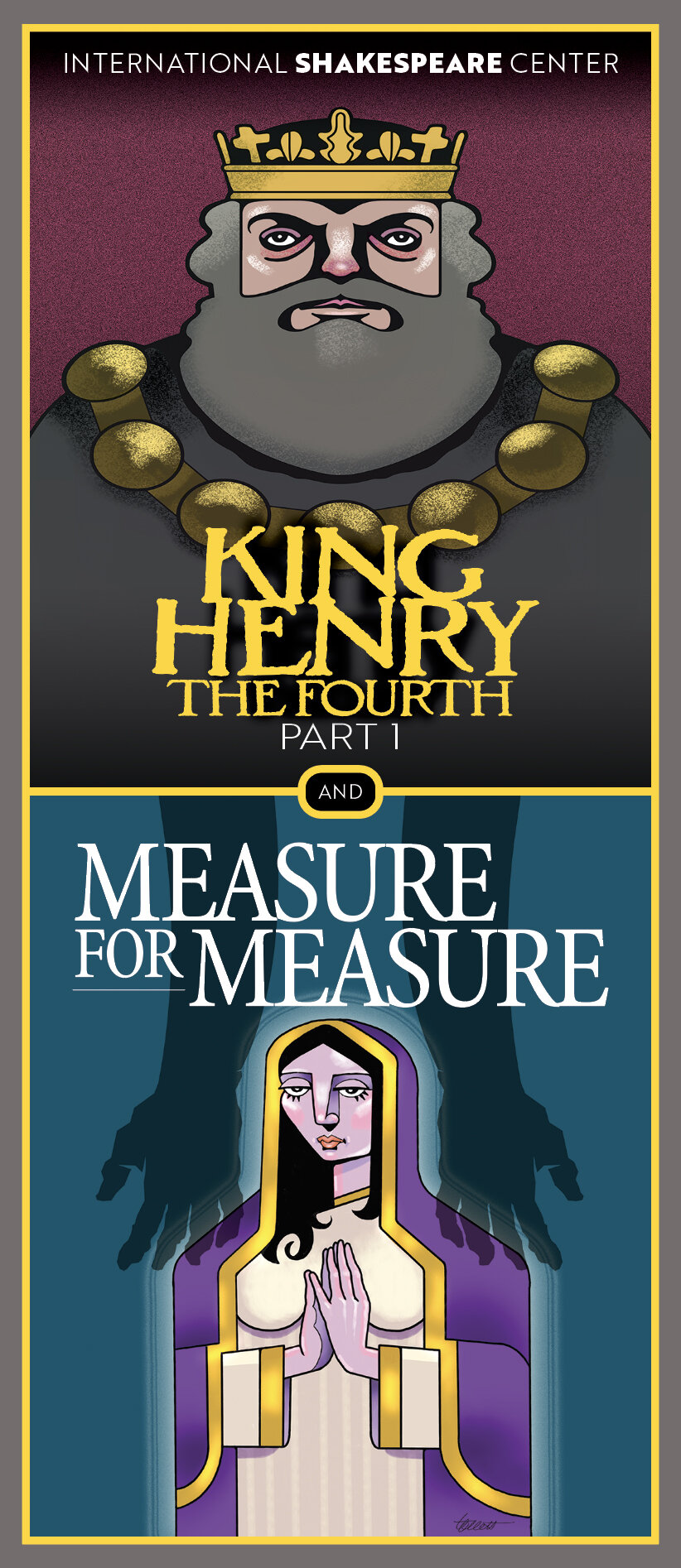
Measure for Measure • 2019
ISC Rep Season 2019 • Questions of Honor
The ISC Repertory Season’s productions of Measure for Measure and Henry the Fourth, Part One wrapped up the inaugural and collaborative 2019 Santa Fe Summer Shakespeare festival that featured three months of Shakespeare events.
Cast
Justin Alpuche: Singer, Mariana's musician
Miles Blitch: Officer, Constable Elbow, Friar Peter
Zoe Burke: Julietta, Servant
Mairi Chanel: Isabella
Ambrose Ferber: Escalus
Glenna Hill: Francisca, Justice, Abhorson,
Mistress Over-done
Breshaun Joyner: Provost
Ariana Karp: Duke Vincentio
***Kelly Kiernan: Pompey
Marty Madden: Froth
Dylan Marshall: Lucio
Liam Mitchell: Officer, Messenger
Ali Olhausen: Mariana
Geoffrey Pomeroy: Angelo
Alex Reid: Claudio
Noah Segard: Barnardine
Clara West: Friar Thomas, Guard
***Appeared through the courtesy of Actors’ Equity Association, the Union of Professional Actors and Stage Managers in the United States.
Production Team
Caryl Farkas: Director
Tracey Mitchell: Stage Manager
Amy Meilander: Assistant Stage Manager
Vincent Faust: Set Design
Alexandra Pontone: Lighting Design
Ali Olhausen: Costume Design & Construction
Caryl Farkas: Props, Sound Design
Sean Boyd: Movement & Intimacy Director
Director’s Note • Caryl Farkas
Shakespeare’s plays present us to ourselves in all our convoluted, disturbed, and bewildered humanity. The characters model what is best and worst in us, often in the same character and sometimes at the same time. My early background in youth Shakespeare productions where the casting, by necessity, is age- and gender-blind, taught me that portraying flawed humanity is an essentially human endeavor, not male or female. When I cast this play, I did so with an eye to who could tell each character’s story well, who would bring the engagement, enthusiasm, curiosity, and zeal to the work of unpacking this tricky play and convey that essential humanity.
Measure for Measure encourages us to consider our human flaws and question what justice is, how nature may overthrow the intellect, the pros and cons of mercy—is it strength or weakness, the value (or lack of) in strict and proscriptive laws, the workings of the heart in matters of conscience.
We entered with as few preconceptions as possible on the heels of an investigation of the play with the Tecolote program at St. John’s College and a lengthy reading with Robin Williams. One lingering concern was the role of the Duke, the largest in the play, but a character who can come across as not very human. He’s been portrayed as a sort of savior/deus ex machina, a puppet master with a master plan, or a cold, amoral schemer with no empathy for those he manipulates.
In the process of rehearsal, we began to see that the savior/puppet master interpretation is unworthy of Shakespeare’s complex genius, and the amoral schemer as virtually unplayable in the context of such a layered and complicated play. I’m delighted with the Duke that emerged in this production: a Renaissance man with full-blown anxiety about the implications of human responsibility. Our Duke sees the problems with his government and himself and is somewhat bumbling in his response, making it up as he goes along, struggling for answers to questions too big for formulaic solutions. In other words, he is much like us.
As the cast and I created this play together, we were struck by how the characters would mirror and get tangled up in Old and New Testament arguments regarding mercy and punishment. The playwright makes no definitive conclusion, but the Duke’s reaction to Isabella’s choice and her defense of Angelo resonates with our own heart’s longing for a merciful justice. We see throughout the play that we are as tangled as the characters in polemics of what is just, fair, and merciful in society, struggling with ancient rationalizations for what is fundamentally not rational at all.
























